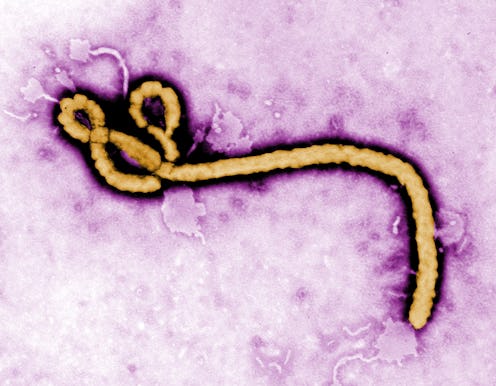News
New York Patient Tests Positive For Ebola
The Doctors Without Borders physician in New York's Bellevue Hospital has tested positive for Ebola, authorities announced Thursday evening. Craig Spencer reported suffering from gastrointestinal symptoms and a fever when he was transported Thursday from his home in Harlem to the oldest public hospital in the United States. Doctors and healthcare officials have anticipated the appearance of the virus in the most populous city of the United States for quite some time, and the Bellevue Hospital has been prepared for the "isolation, identification and treatment of potential Ebola patients," according to a statement.
The 33-year-old doctor, who works at Columbia Presbyterian Hospital, was in West Africa as part of the Doctors Without Borders treating Ebola patients in Guinea until October 14, just over a week ago. On Wednesday, he began exhibiting the classic symptoms of Ebola, including fever, nausea, pain and fatigue. Mayor Bill de Blasio sought to assuage New Yorkers' fears at a press conference Thursday evening, assuring city residents that Spencer was symptomatic for a "very brief period of time" and was in direct contact with "very few people."
But new reports from the New York Times suggest that Spencer spent Wednesday evening in a bowling alley in Williamsburg, and that he used took the subway from Manhattan to Brooklyn, and used an Uber car service to journey back. Sources have also informed the New York Post that Spencer's temperature when he landed in the United States was 98.7 degrees.
Witnesses who saw Spencer being transported from his apartment on West 147th street to Bellevue hospital said that he appeared "like a mummy" as he was lifted from a wheelchair to a stretcher by men who were donned from head to toe in protective gear.
According to authorities, while Spencer "began feeling sluggish a couple of days ago," he did not reach out to Doctors Without Borders or other authorities until he developed a 103 degree fever on Thursday. Officials have quarantined his girlfriend, whom he has spent time with since his return, but have yet to make any further announcements as to who else may be in danger.
Mayor de Blasio noted in his press conference that it was imperative to stay calm, as full details of Spencer's case are not yet known. Said de Blasio,
The important thing to remember here is, until we have full information, we can't draw conclusions. So we want to be careful not to make assumptions until all the testing is done.
The mayor also reported that "careful protocols were followed every step of the way" to ensure that the virus did not spread to first responders of Spencer's situation.
Since the emergence of Ebola in the United States, the state of New York has taken numerous precautions to prepare itself for the virus, and Governor Andrew Cuomo established an Ebola readiness plan earlier this week. As part of the strategy, two ambulances are stationed at JFK and Newark airports, New York City's transit authority has been equipped with protective gear and training, and regular, surprise drills are ongoing at airports, college campuses and subways. Cuomo has also "designated eight hospitals statewide to treat potential patients with Ebola," one of which, of course, is Bellevue Hospital.
"Disease detectives" have already been dispatched to begin to "actively trace all of the patient’s contacts to identify anyone who may be at potential risk," a city statement reads, and trained staff members have "established protocols to identify, notify, and, if necessary, quarantine any contacts of Ebola cases." Columbia Presbyterian Hospital reports that Spencer has not returned to the hospital nor treated patients since his return to the United States. In a statement, the hospital called him a "dedicated humanitarian" and a "committed and responsible physician who always puts his patients first."
At a press conference Thursday night, Bill de Blasio said: "We've been preparing for months for the threat posed by Ebola ... Every hospital in the city is prepared that other patients come forward. The patient in question is a doctor that has worked with Ebola patients in West Africa.
"We are prepared to quarantine contacts as necessary ... Again, we emphasize: Ebola is very different to contract. Being on the same subway car as someone with Ebola does not put anybody else at risk."
Images: OutFrontCNN, hypervocal/Twitter
